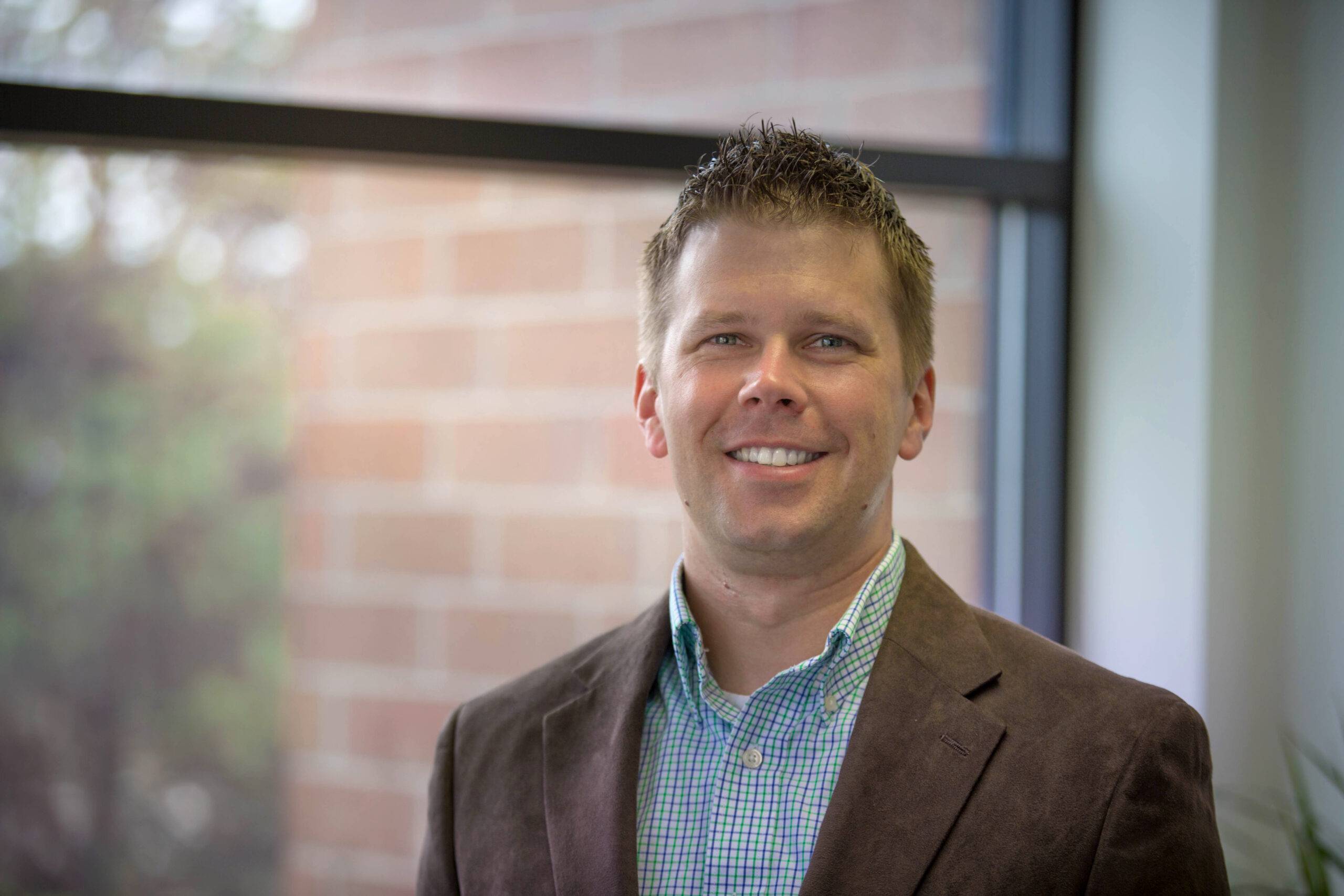
Sustainable STEM Impact in Forest Lake
Forest Lake Area Schools (FLAS) were looking to reduce groundwater use, improve water quality to Clear Lake, and jumpstart an innovative curriculum program that would promote sustainability and STEM education. Forest Lake High School is made up of acres of impervious surfaces, drainage infrastructure, turf grass and natural areas, and a student body that is eager to learn, making them the perfect candidate to host the solution – a stormwater pond.
FLAS; Rice Creek Watershed District (RCWD); the Minnesota Department of Health; Forest Lake High School environmental, biology, and agriculture faculty; and student-led environmental club, formed a unique partnership, with the support of the Board of Water and Soil Resources Clean Water Fund in the form of a grant of $505,000, and built a stormwater pond for capture and reuse of stormwater for irrigation. This project aligned with other building and parking improvements, which led to substantial cost savings.
Captured stormwater is pumped through a filter and an ultraviolet treatment system to eliminate bacteria and other potentially harmful pathogens. The treated pond water irrigates the campus’ football, baseball/softball, and soccer fields, taking care of 85% of their irrigation needs and saving 4 million gallons of water annually. FLAS’ Grounds and Maintenance group is dedicated to managing and maintaining the system, which includes operating the irrigation pumps and treatment system and pulling the pumps out of the pond in the winter.
FLAS is an exemplary leader in environmental education and stewardship, a participant in NASA’s Explorer Schools Program and a recipient of the US Department of Education’s Green Ribbon School – they are constantly working to reduce environmental impact and utility costs, improve health and wellness, and ensure effective and sustainable education.  Because STEM education is so important to FLAS, the high school was able to take this project and create an outdoor classroom where students can participate in a real-world environmental laboratory and learn about innovative approaches to natural resource protection. The high school is blazing a new trail to standardized environmental, biological, and agricultural curriculum.
Because STEM education is so important to FLAS, the high school was able to take this project and create an outdoor classroom where students can participate in a real-world environmental laboratory and learn about innovative approaches to natural resource protection. The high school is blazing a new trail to standardized environmental, biological, and agricultural curriculum.
FLAS is an exemplary leader in environmental education and stewardship, a participant in NASA’s Explorer Schools Program and a recipient of the US Department of Education’s Green Ribbon School – they are constantly working to reduce environmental impact and utility costs, improve health and wellness, and ensure effective and sustainable education. Because STEM education is so important to FLAS, the high school was able to take this project and create an outdoor classroom where students can participate in a real-world environmental laboratory and learn about innovative approaches to natural resource protection. The high school is blazing a new trail to standardized environmental, biological, and agricultural curriculum.
“Making students aware of the complex topics affecting our communities, and allowing them to problem solve potential solutions, is central to the educational process at Forest Lake Area Schools. This becomes more meaningful to students when we can engage them in the work. The construction of an onsite stormwater capture and reuse system, and the development of integrated curriculum, has provided a laboratory experience where students can explore, observe, and analyze the sustainability of this new technology in several different courses,” said Mike Miron, career & tech ed/work based learning coordinator at Forest Lake Area High School.
With the ability to leverage funding and add an additional phase to the project, FLAS and the RCWD will be able to add a cistern to the campus greenhouse. The addition of the cistern will allow the capture of greenhouse roof drainage water to irrigate the plants. This will allow Forest Lake Area High School to continue teaching soil chemistry work and water chemistry work to their students in a sustainable way.
“We can have a larger impact when we use science curriculum to teach real world lessons. That’s why the work that we’ve been doing with STEM has been so rewarding because I feel like we’re connecting with our communities through those programs,” said Tim Olson, water resources project manager at Bolton & Menk.
At the close of the Stormwater Capture and Reuse for Irrigation Project, this unique partnership was able to support RCWD and the Clear Lake Association initiatives to keep Clear Lake off the impaired waters list, support the city’s initiative to reduce irrigation and other non-consumptive water uses, and create a stormwater quality testing site to identify potentially harmful bacteria that may be transmitted to humans via irrigation infrastructure. This site supports the Minnesota Department of Health’s initiatives to provide state guidance on effective treatment of stormwater for irrigation, and develop curriculum to real-world, innovative approaches to sustainability that will influence generations to come.
 Tim Olson, P.E., CFM, grew up in Minnesota, land of 10,000 lakes, and knew he wanted to find a career that helped to protect the resources he grew up interacting with. He has found that Bolton & Menk shares the same passion of protecting those resources. Since 2006, Tim has worked on the design and development of Comprehensive Stormwater Management Plans, sanitary sewer modeling, hydrologic and hydraulic studies, and hydrologic plan reviews. He has also prepared a multitude of Stormwater Pollution Prevention Plans (SWPPP) and submitted associated NPDES Phase II Construction Stormwater Permits.
Tim Olson, P.E., CFM, grew up in Minnesota, land of 10,000 lakes, and knew he wanted to find a career that helped to protect the resources he grew up interacting with. He has found that Bolton & Menk shares the same passion of protecting those resources. Since 2006, Tim has worked on the design and development of Comprehensive Stormwater Management Plans, sanitary sewer modeling, hydrologic and hydraulic studies, and hydrologic plan reviews. He has also prepared a multitude of Stormwater Pollution Prevention Plans (SWPPP) and submitted associated NPDES Phase II Construction Stormwater Permits.
